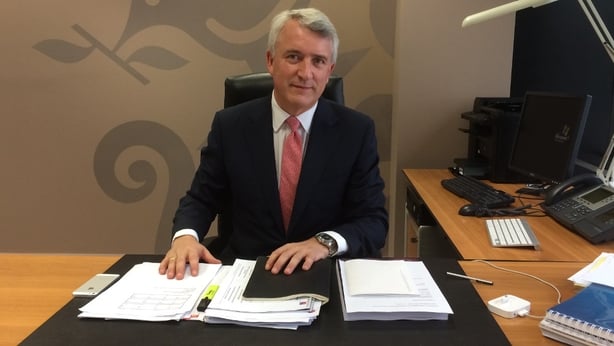Banks must tread carefully before they begin to write back provisions on bad loans as a result of a recovering property market and not bow to demands to bolster profits, a senior Central Bank official said today.
Property prices are once again climbing after a devastating crash and are now about 40% below a 2007 high.
This compares to the 55% peak-to-trough assumption banks have provided for and has prompted some to raise the prospect of write-backs.
The Central Bank today described provisions as "effectively the raw material used to work out problem loans".
After the crisis that brought banks to the verge of collapse, lenders should be aware that the recognition of appropriate levels of provisions is critical to stabilising non-performing loans, the Central Bank's Sharon Donnery said.
The Director of Credit Institutions Supervision at the Central Bank made her comments at the Banking & Payments Federation Ireland National Conference in Dublin today.
"Whilst there have been improvements in certain key parameters such as house prices, there are still unreliably low levels of activity to have high levels of confidence in changing assumptions," Ms Donnery told the conference today.
"The ability to write back provisions must be reflective of a conservative view and therefore the timing and extent of any write-backs must be balanced extremely carefully. Demands to bolster profits, reserves and capital cannot be allowed to destabilise the progress on debt resolution," she added.
AIB, which said yesterday that it had taken an overall net provision write-back in the first nine months of the year, became the first domestic bank to revise its peak-to-trough assumption to 52 percent in July.
Permanent TSB, the only Irish bank to fail last month's European stress tests, said it had also reduced the amount of money set aside to cover losses on bad loans in the third quarter, though it has kept the conservative price assumptions.
"It would be a significant backwards and destabilising step if a bank had to reverse course and re-recognise provisions in the coming years. We will continue to strongly challenge our banks to make sure that the appropriate balance is struck," Ms Donnery said.

She also defended new central bank proposals to restrict mortgage lending above 80% of the value of a home to no more than 15% of the aggregate value of all home loans, describing them as "proportionate limits".
However, AIB chief executive David Duffy said that some of the proposed restrictions by the Central Bank on mortgage lending may need to be phased in to avoid pricing out some buyers,.
The Central Bank will also impose restrictions on the amount of lending in excess of three and a half times a borrower's income.
Mr Duffy made his comments at today's Banking & Payments conference in Dublin.
"I fully support the principle. I think the rate (on house values) might be a little bit high to start with. If you start at (a deposit of) 20%, are there unintended consequences of exclusion? Do you look at phasing?" Mr Duffy said,
He is also president of the Irish Banking Federation.
The proposed measures will require banks to restrict lending above 80% of the value of a home to no more than 15% of the aggregate value of all housing loans. They will also impose restrictions on the amount of lending in excess of three and a half times a borrower's income.
Mr Duffy made his comments at today's Banking & Payments conference in Dublin.
"I fully support the principle. I think the rate (on house values) might be a little bit high to start with. If you start at (a deposit of) 20%, are there unintended consequences of exclusion? Do you look at phasing?" Mr Duffy said,
Mr Duffy is also president of the Banking Federation.

